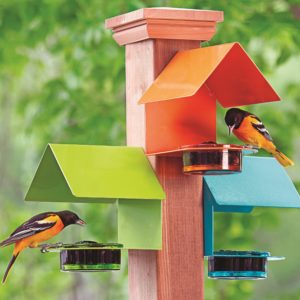
Love nature and wildlife? Thinking about turning your interests into a career? There are many jobs in the wildlife industry that can be rewarding and lucrative.
The term “wildlife industry” encompasses a wide array of choices. Perhaps you want to care for animals in the wild be it air, land and sea—or maybe you want a career protecting wildlife. There are many options and based on statistics from the U.S. Bureau of Labor, you can make a good living doing something you love in the wildlife industry. Let’s take a look at a variety of careers, the education required, the duties, experience and salary range.
Common Careers in the Wildlife Industry
Wildlife veterinarians are qualified to treat a variety of species including reptiles, birds, and mammals. You will go to school from seven to nine years; four years of undergraduate school then three to five years of med school. The number of years fluctuates depending on specialty and certification. You will graduate with a Doctor of Veterinary Medicine (DVM) degree, after completing studies that cover both small and large animal species.
Based on information from The Balance Careers, the typical duties of a wildlife vet may include sedating animals for procedures, performing exams, giving vaccinations, taking blood samples, administering fluids, performing surgeries when needed, prescribing medications, evaluating and treating wounds, taking x-rays and ultrasounds, cleaning teeth, assisting with captive breeding programs, and providing intensive care for very young animals abandoned by their parents. Vets often work hand in hand with wildlife rehabilitation specialists as well.
Zookeepers are responsible for the daily care of a zoo’s animal collection. Regular duties include feeding, giving medications, cleaning enclosures, and reporting behavioral changes. Most zookeepers have at least a two-year degree and specialize in a specific area, such as working with birds, big cats, elephants, or aquatic species. Zookeepers play a role in educational programs offered to the public in many zoos and parks, including conservation efforts. Zookeepers may provide public programs with demonstrations including live animals.
Fish and Game Wardens patrol designated areas to ensure wildlife species are protected from human behavior. Wardens are authorized to arrest those who violate laws. They may also assist wildlife biologists with research projects and data collection. Two to four years of education in wildlife management or law enforcement are desirable, including a two-year degree.
Marine biologists study a wide variety of aquatic animals from microscopic sea life to whales. They may work in research, private industry, or education. A four-year degree is required, and most have a master’s degree or doctorate. Most undergrad degrees are in the fields of zoology or animal science, then they may earn a Ph.D. in marine biology.
Wild Birds Unlimited Franchise Career
The fifth and final wildlife industry career to consider is business ownership as a Wild Birds Unlimited franchisee. It is a rewarding and creative way to combine business and your love of wildlife. Wild Birds Unlimited is a leader in the wild bird feeding industry, a growing hobby with more than 80 million people participating in the joy of feeding birds and other wildlife, annually.
There are many benefits of franchising with Wild Birds Unlimited. You help members of your community enjoy the hobby of backyard bird feeding while benefitting from the lucrative career of business ownership with a proven business model and a reputable brand that’s been in business for 40 years.
Having a background in business or customer service is advantageous, but your franchise training includes in- depth instruction about operating your franchise location from merchandising, purchasing to marketing and hobby education.
Sound like the career choice for you? Fill out this form to learn more about becoming a Wild Birds Unlimited franchisee and come fly with us.
